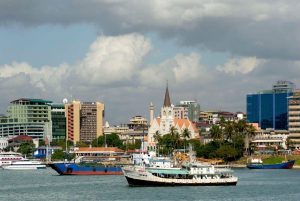The International Air Transport Association (IATA) has called on the government of Canada to relax its stringent travel restrictions and allow air travel within, to and from the country to return to a semblance of normalcy.
The international aviation trade organization says on 14 September that blanket testing for the coronavirus could be a good alternative to the current measures, which require 14-day quarantines for most inbound passengers, be they visitors, citizens or permanent residents.
“‘There are alternatives to the quarantine measures currently in place that can both keep Canadians safe as well as revive the economy, “IATA director general Alexandre de Juniac says. “The ICAO multi-layered approach is one. The work that Air Canada and WestJet are doing on testing adds another dimension.”
”It is critical that the government of Canada act on these before the economic and social damages become permanent and the public health consequences of mass unemployment become even more apparent,’’ he adds.
In March, the country imposed some of the strictest lockdown and shelter-in-place measures in the world in order to stop the spread of the highly-contagious virus. Six months on, many of those measures are still in place, angering travel companies, passenger carriers and related industries, and hindering the country’s travel sector from returning to normal operations.
Canadian customers are also wary of the contracting the coronavirus, and are still not returning to air travel in significant numbers.
IATA estimates that about 410,000 jobs and some C$39 billion ($29.6 million) of Canada’s gross domestic product are at risk because of the rules. It adds that 3.2% of the country’s GDP, or 633,000 jobs, are supported by the air transport sector and foreign tourists arriving in the country.
Canada effectively sealed off the longest peaceful border in the world, between the USA and Canada, for non-essential travel in March. That border crossing ban remains in effect and has been extended several times. Barring a further extension, it is now is due to expire in a week, on 21 September.
Air Canada, based in Montreal, has repeatedly blasted the government of Canada for its draconian travel restrictions. Chief executive Calin Rovinescu has harshly criticised the government for the extension of the measures which, coupled with already fragile demand, have prevented it and its Canadian peers from getting back to any semblance of normal business operations.
The legacy carrier in July posted a stunning C$1.8 billion loss during the pandemic-ravaged second quarter, during which it transported just 4% of the number of passengers it carried during the same period one year ago, in what Rovinescu calls “an impossible operating environment”.
Last week, Montreal-based vacation specialist Air Transat said that since the country is still keeping a tight rein on travel between provinces and beyond its borders, the government should step in to offer financial aid to the travel companies who are suffering as a result.
“With Canada maintaining some of the most stringent border restrictions and still requiring quarantine for people returning from abroad, it’s time for the government to provide targeted support for the airline sector to ensure the existence of a competitive industry in Canada over the long term,” Transat said on 10 September.
Calgary-based WestJet says on 14 September that it is reinstating some flights to the USA from early October, after the border is expected to be opened. The airline released an updated schedule that is, it says, “designed to get Canadians to and from key destinations while supporting the economic recovery of Canada through continued domestic flying”.



